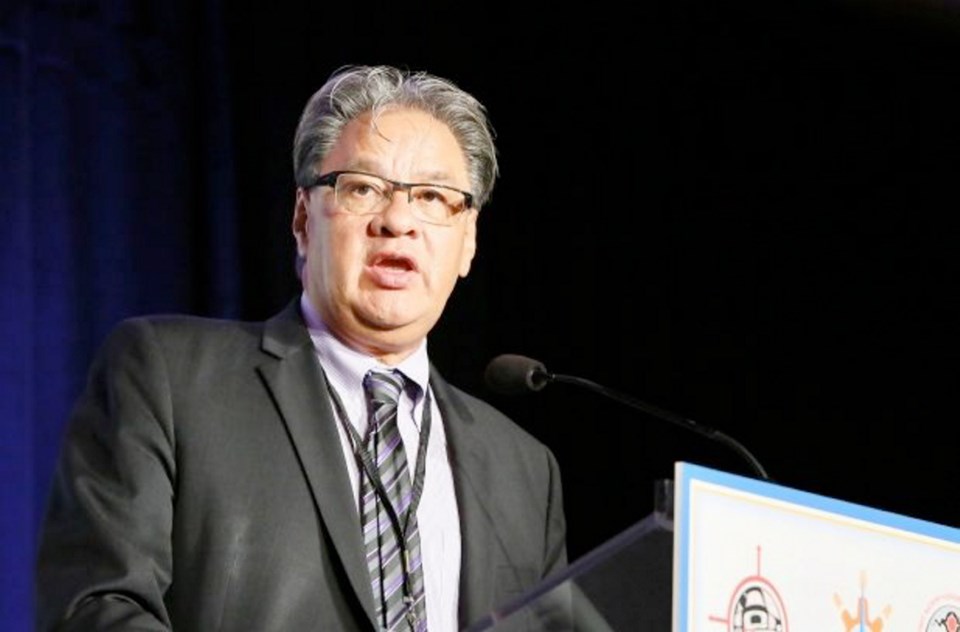OTTAWA — The Trudeau government’s new Kinder Morgan panel, aimed at reviving public trust in the federal review process, has come under fire as it starts B.C. hearings next week into the controversial $6.8-billion pipeline expansion project.
Some West Coast First Nation leaders say the Liberals are ignoring, and therefore are likely to repeat, the mistakes of the Harper Conservatives.
Accusations that Stephen Harper’s Conservative government failed to adequately consult First Nations on Enbridge Inc.’s proposed $7.9 billion Northern Gateway project to Kitimat resulted in last month’s Federal Court of Appeal decision quashing the 2014 approval of the project.
Earlier this year, the new Liberal government unveiled a new three-person panel to hear public, interest group, and First Nation concerns in B.C. and Alberta about Kinder Morgan’s bid to triple capacity of its line from Edmonton to Burnaby.
Cheam Chief Ernie Crey said neither he nor other chiefs from the Sto:lo group of First Nations have yet received individual invitations to the hearings in Chilliwack next Thursday.
That, he said, is an “insulting” move that belies the Liberal promise to approach consultations on a respectful nation-to-nation basis.
“It’s as though they didn’t read the decision” from the Federal Court of Appeal, Crey said.
Grand Chief Edward John, a member of the B.C. First Nations Summit, also expressed concern about the lack of notice to Sto:lo bands that are based on or near the pipeline route.
“Following and respecting protocol with First Nations governments is very important,” he said in an email. “It is Sto:lo traditional territory after all, and there is a proposal which will impact this territory.”
John questioned whether the federal government would deal the same way with the B.C. government.
“I am hoping this is rectified.”
One of the three panelists, meanwhile, is being accused of being in a conflict of interest.
Former Tsawwassen First Nation Chief Kim Baird, now a registered lobbyist for a liquefied natural gas project in B.C., participated while she was chief in 2011 in an executive exchange program with Kinder Morgan Canada chief executive Ian Anderson.
“Chief Baird learned about the pipeline industry and KMC’s operations,” the company said in a news release at the time. “The relationship established between Ian and Kim has evolved to include a closer working relationship between (Kinder Morgan and Tsawwassen First Nation) employees.”
The Dogwood Initiative, in a post on its website this week, called for Baird’s removal. The post cited a complaint made this spring by Union of B.C. Indian Chiefs President Stewart Philip about Baird’s alleged conflict.
“Anything less will cast a shadow over the entire ‘supplemental review,’ and undo the government’s attempt to restore public trust through a transparent and credible process,” the B.C. environmental group’s post stated.
Baird, who is joined on the panel by former Yukon premier Tony Penikett and former Alberta senior bureaucrat Annette Trimbee, said individual invitations will be sent.
But she acknowledged there are “logistical” challenges due to the short timeline to produce a report by Nov. 1. The federal cabinet is to render its final decision in late December.
“Ideally there would be more notification,” Baird said in an interview Friday.
She also challenged criticism that her professional relationship with the Kinder Morgan chief executive creates a conflict.
Baird noted that she is a member of a First Nation that now formally opposes the project, and said as a consultant and former chief she knows and does, or has done, formal or informal business not only industry executives but numerous mayors, provincial politicians, and First Nations leaders across the province.
She also noted that the panel’s role is to simply report to cabinet what the three members heard from groups and members of the public, rather than make a recommendation.
“I fail to see how my relationship with any involved parties would impact my ability to hear those concerns and relay them to the minister,” she said. “I don’t quite see the conflict.”
As for her role as an industry lobbyist, she said she is highly selective about which corporate clients she’ll represent. She indicated she could be making more money than she currently is if she wanted to work for one or more of the major oil pipeline firms.
The panel, created by the Liberals to augment the National Energy Board’s hearings into the proposal, began three days of hearings in Alberta on July 9 (see this link for details and schedule).
The process moves to B.C. next week, starting on Tuesday in Kamloops, moving to Chilliwack Thursday. Meetings will be held the following week in Abbotsford and Langley, and then after a break will continue in Burnaby, Vancouver, North Vancouver and Victoria Aug. 9 to 24.
The meetings, all open to the public, are broken up into “invitational roundtables” involving various groups like landowners, local government, business, and environmental organizations. Separate “First Nations roundtables” will also be scheduled.



